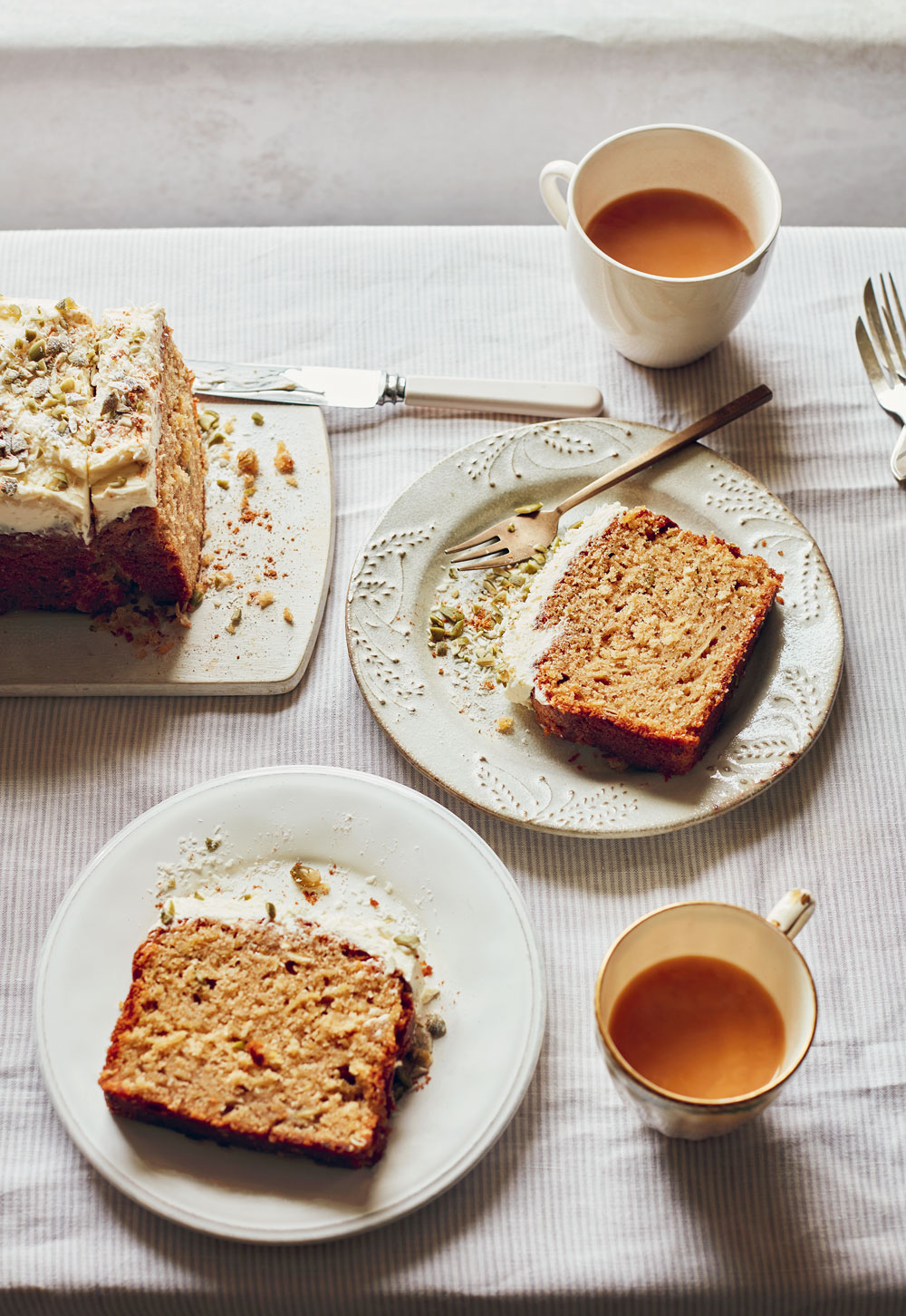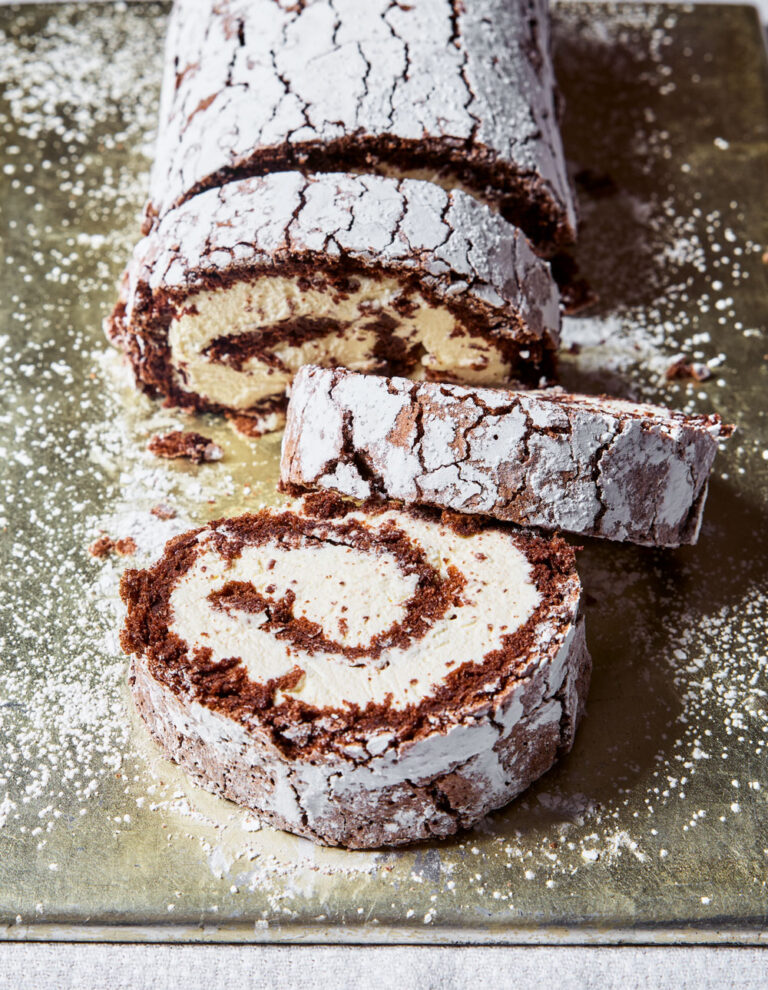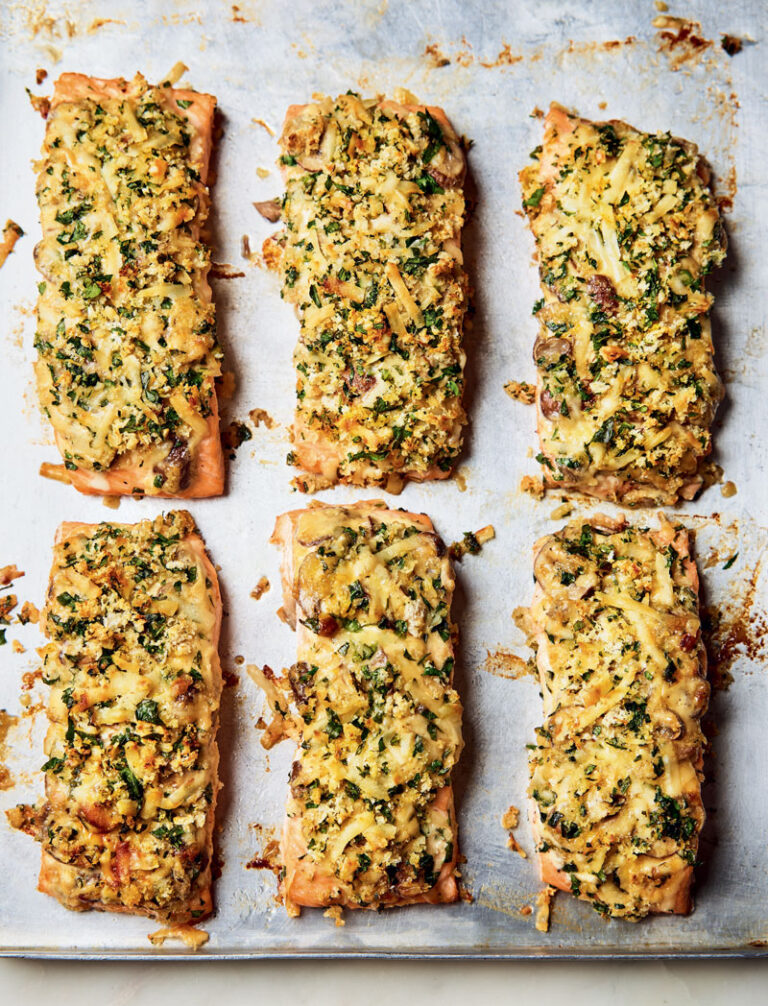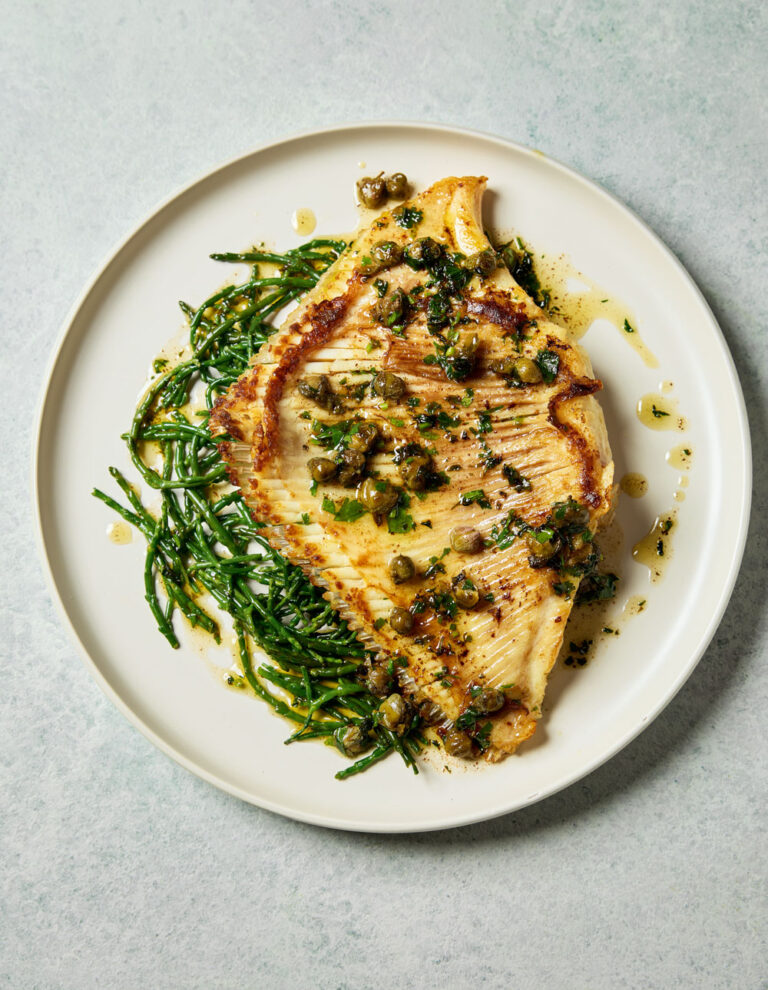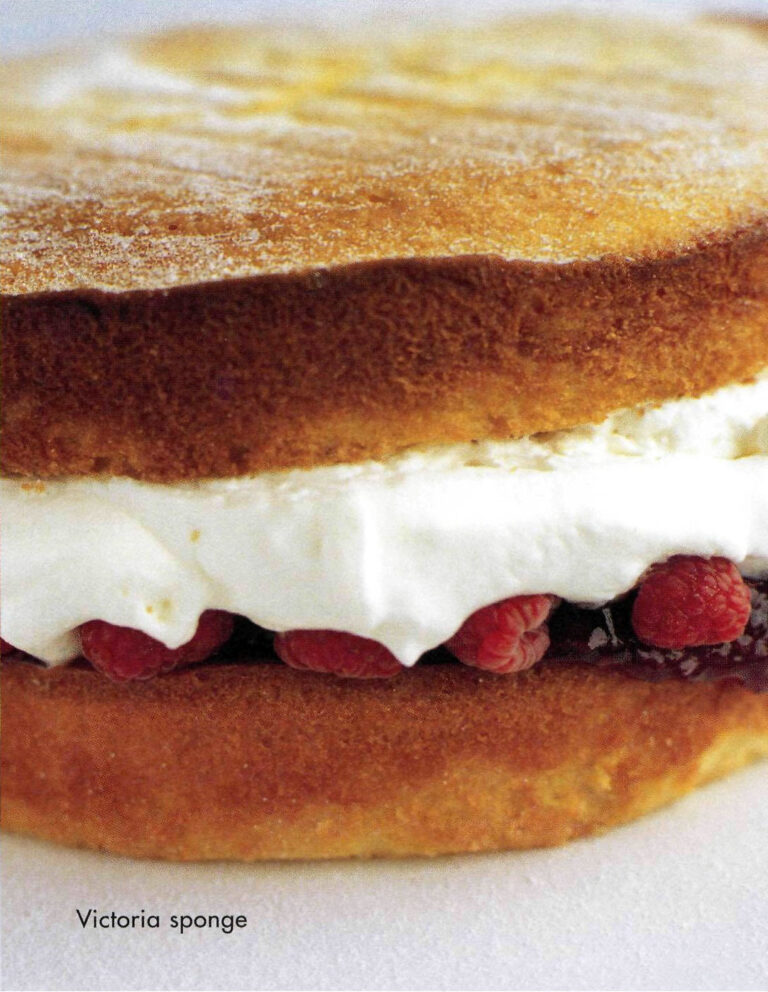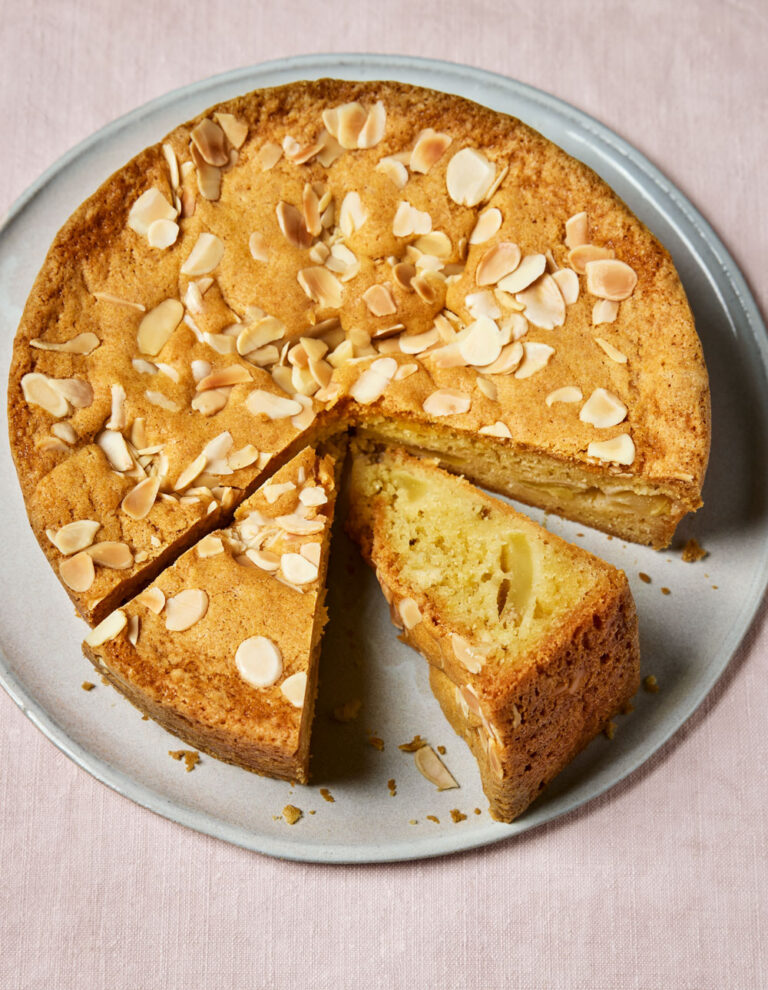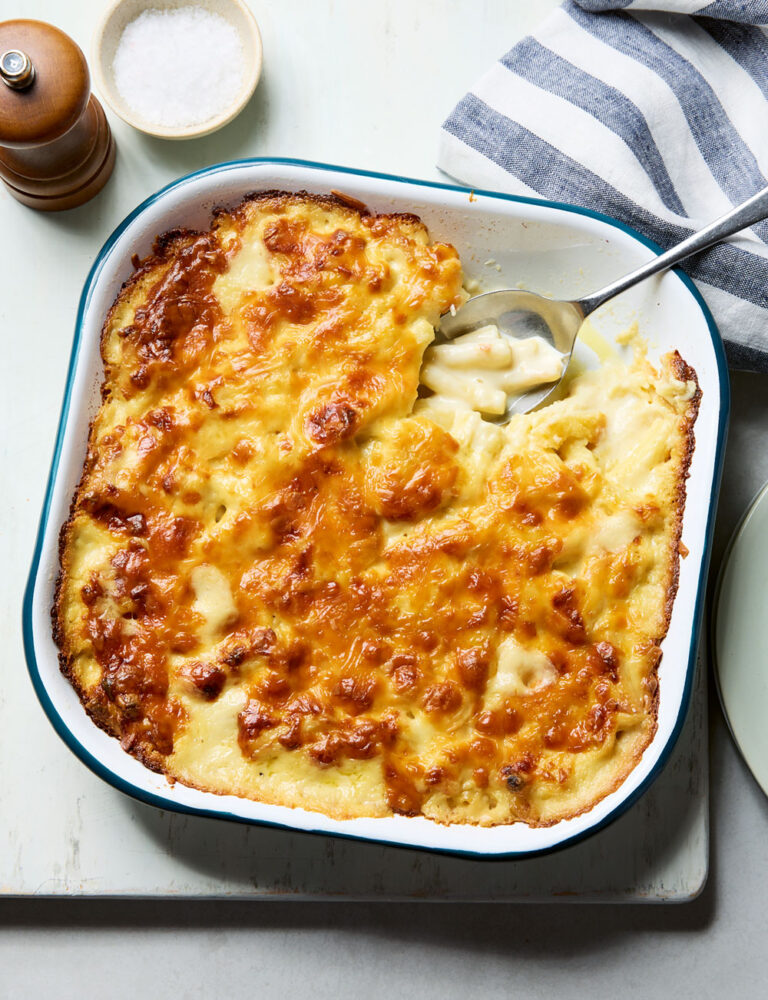Mary Berry’s Victoria Sandwich Cake
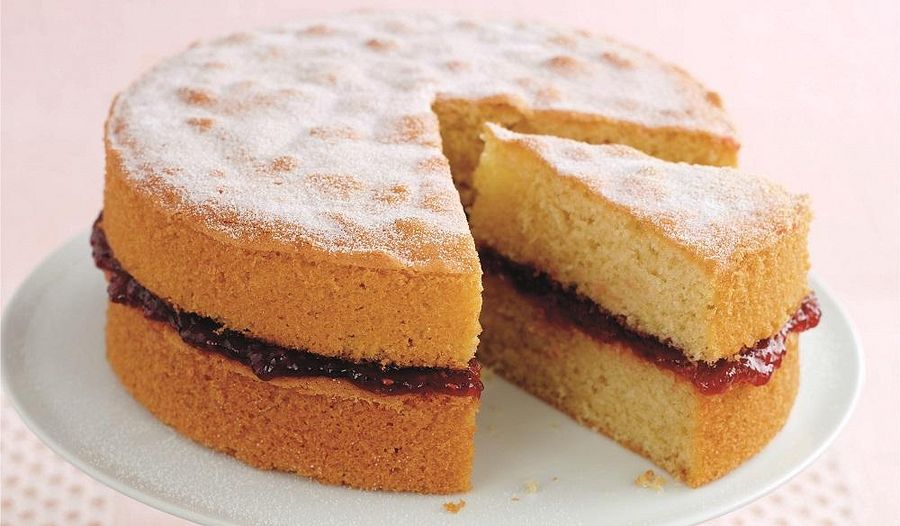
Mary Berry shares her master class recipe for the perfect Victoria Sandwich. Share this delicious sponge with friends on a Sunday afternoon.
Introduction
Prep time: 15–20 mins Cook time: 20–30 mins
Once you’ve baked a cake, you’ll never want to buy one again. Not only will a home-baked cake taste fresher and better than a bought one, it will also fill your kitchen with an irresistible aroma. This all-in-one method (where all the ingredients are put into the bowl at the same time and beaten together) is simplicity itself.
Ingredients
| 225g (8oz) | butter (room temperature) or vegetable spread (at least 70% fat), plus extra for greasing |
| 225g (8oz) | caster sugar |
| 225g (8oz) | self-raising flour |
| 2 level tsp | baking powder |
| 4 | large eggs |
| For the filling and topping: | |
| about 4 tbsp | raspberry or strawberry jam |
| a little caster sugar, for sprinkling |
Essential kit
You will need 2 deep 20cm (8in) loose-bottomed, round sandwich tins and an electric mixer.
Method
Watch how to make this recipe with Mary Berry’s how-to video
Shopping tips: You can save time by using readycut circles of baking parchment, available from specialist cook shops, department stores, and mail-order companies.
Prepare ahead: The cake is best eaten on the day of baking, but it will keep in an airtight container for 1–2 days and can be frozen for up to 3 months: freeze the unfilled layers separately, with the base papers on. Wrap each layer in foil and put in a freezer bag.
Prepare the tins: Preheat the oven to 180°C (fan 160°C/350°F/Gas 4). Cut 2 baking parchment circles, grease the sandwich tins with butter or vegetable spread, and put the circles inside. Grease the circles. (Key to Success: The tins must be greased evenly, or the cakes will not rise properly.)
Make the mixture:
1. Place the butter or vegetable spread in a large bowl, then add the caster sugar, self-raising flour, and baking powder. Crack the eggs one at a time and add to the bowl. (Key to Sucess: Always use exactly the right amount of baking powder; too much will make the cake dry.)
2. Using the electric mixer on a slow speed, beat for minutes, or until smooth. The mixture will be soft enough to drop off the beaters when you lift them up. (Key to Success: Be careful not to
over-mix. You can get a good result with a wooden spoon, but it will take a little longer.)
3. Divide the mixture equally between the prepared cake tins and level the surfaces with a palette knife or spatula, smoothing it over the surface of the two cakes.
Bake and assemble the cake:
1. Bake both cakes for 20–30 minutes. When done, they will shrink away from the sides and the tops will spring back if pressed. Cool for 2 minutes; loosen the edges with a knife. (Key to Success: Do not be tempted to open the oven door before 20 minutes, or the cakes will sink, and never overbake, or they will become hard.)
2. After about 10 minutes, push the cakes out of their tins on their bases, invert them onto a thick tea towel, and remove the bases. Cool the cakes the right way up on a rack.
3. Soften the jam with a palette knife. When the cakes are cold, remove the lining papers and invert one cake layer onto a plate. Spread with jam, put the other layer on top, and sprinkle with caster sugar.
Reviews
Have you tried this recipe? Let us know how it went by leaving a comment below.
Our team is taking a break over Christmas and may be slower to respond to your comments or queries. We apologise for any inconvenience this may cause.
Please note: Moderation is enabled and may delay your comment being posted. There is no need to resubmit your comment. By posting a comment you are agreeing to the website Terms of Use.

